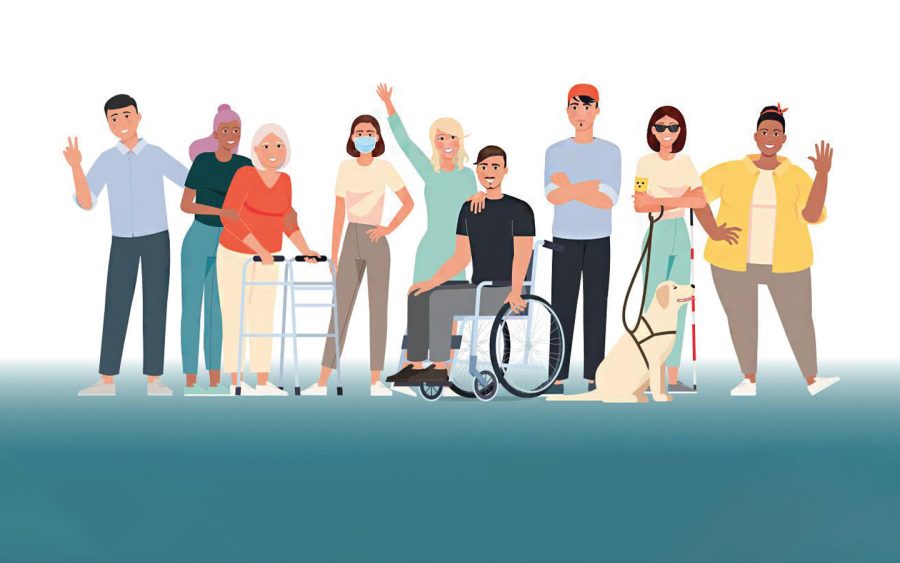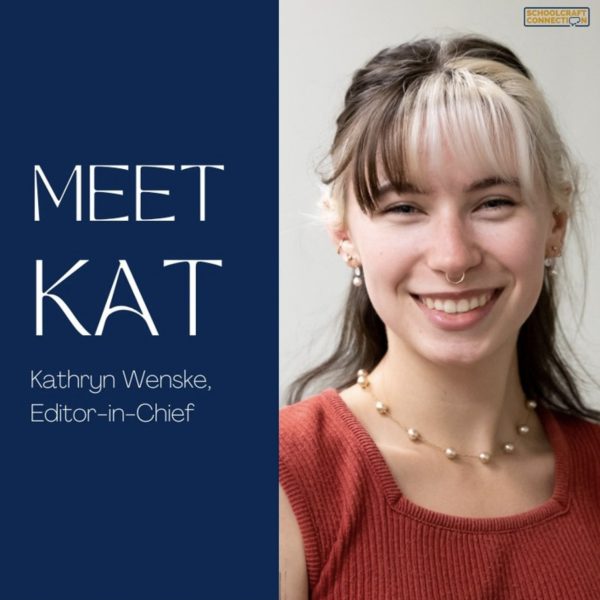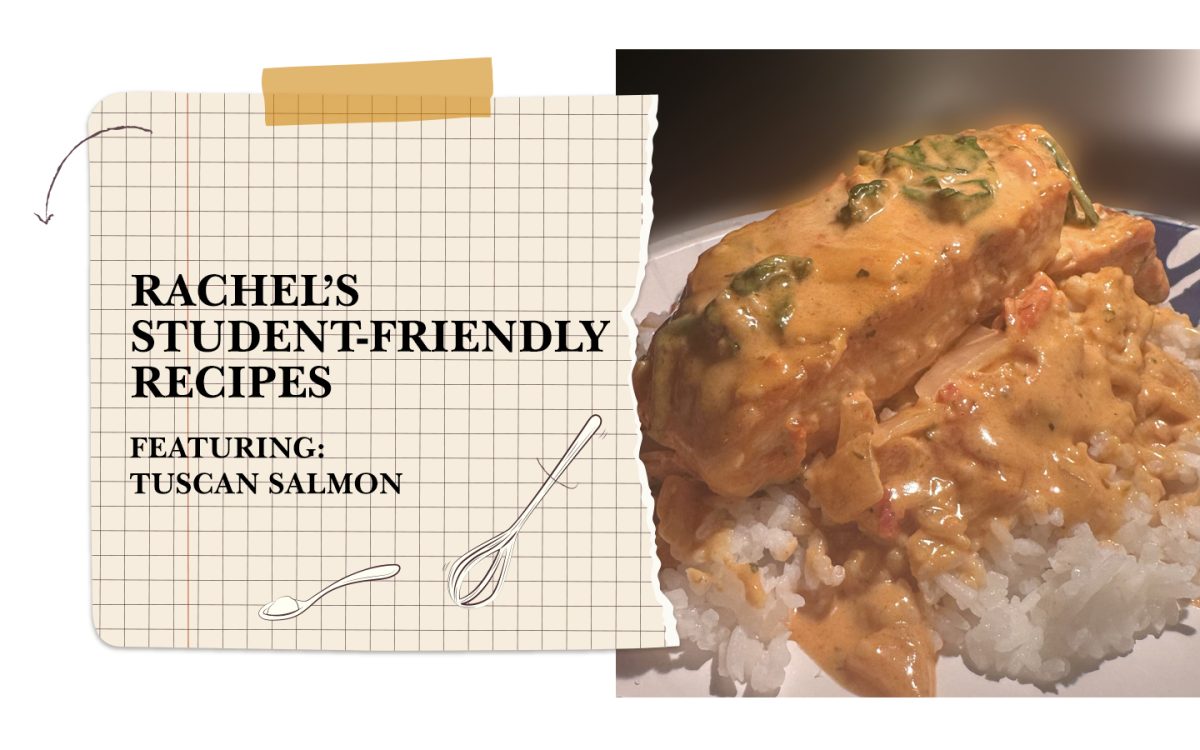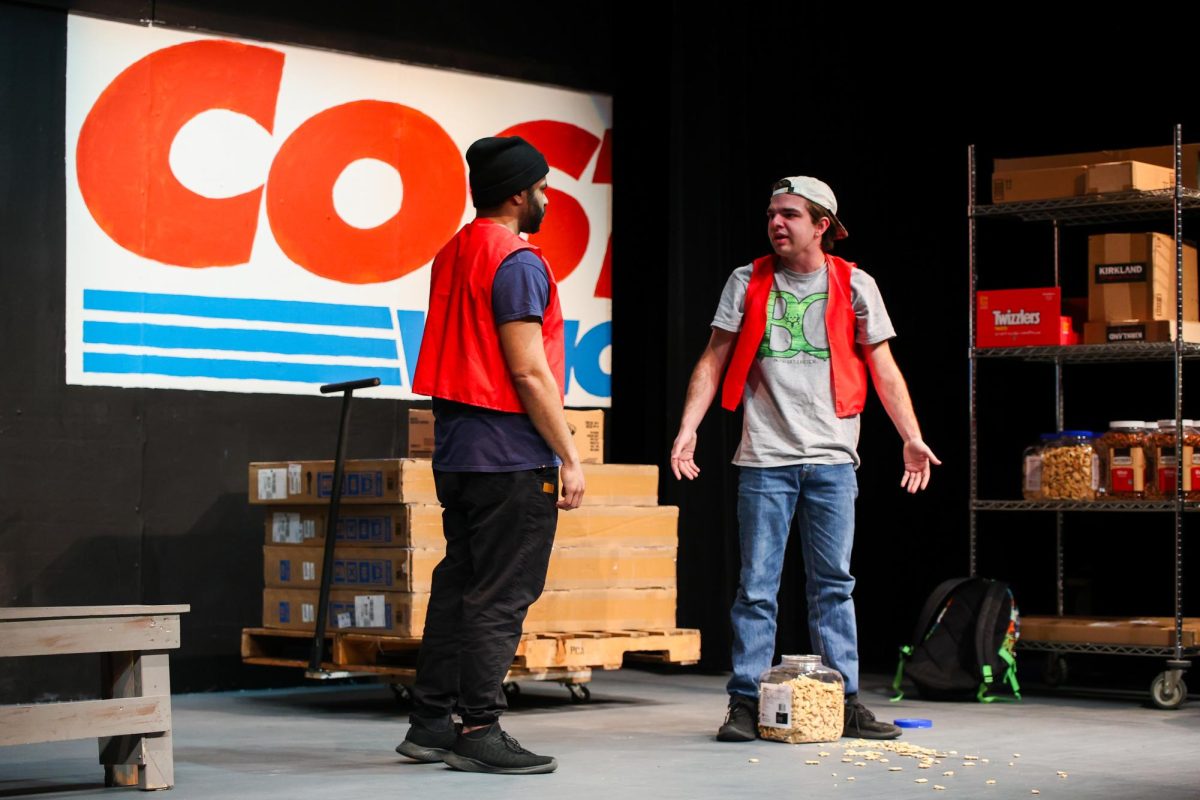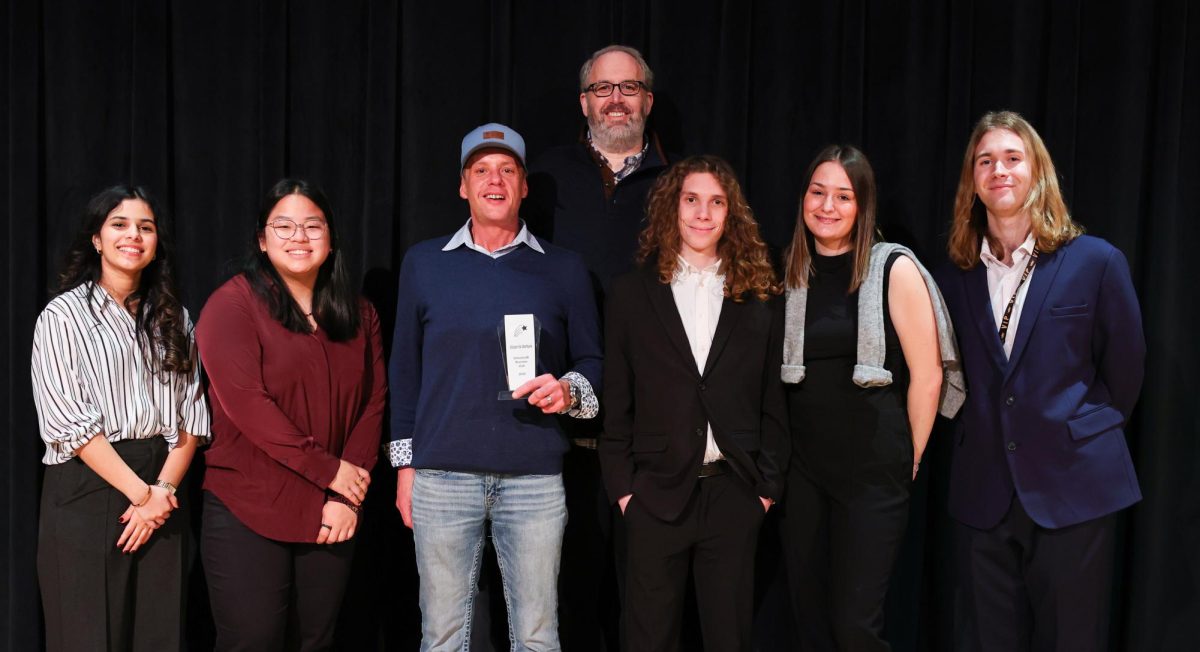Getting the work done
Increasing accessibility and possibility to students, from students
February 21, 2023
Creating a safe and accessible environment for the community is a top priority for Schoolcraft. The college offers various programs and opportunities to faculty and students; designed to aid in bringing inclusivity and possibility in attaining their goals.
“I think that increasing accessibility allows for the opportunity for everyone to be a part of whatever is going on around campus, whether it be purely towards education or for other aspects, such as maneuverability around campus and in between classrooms,” said communications major Gavin Carrigan.
The college also strives to prioritize student voices and invites them into the conversations of addressing improvements to the school. Phi Theta Kappa (PTK) member and activist in the student body, Madison Ling, was one of those students.
Invited to a “College Chat” media session in 2021 recognizing National Disability Employment Awareness Month (October), administered by the Media Department and Professor of Music and Theater, Dr. Fredrick Moss, Ling provided her perspective on campus accessibility as an employee and student of impairment herself. This being the first meeting she had met with President of Schoolcraft Dr. Glenn Cerny, he encouraged Ling to be honest and address any accessibility barriers in order to identify what could be improved.
“Dr. Cerny started asking me questions about myself, my program and my future. I started feeling increasingly comfortable in his presence as I asked him questions and got to know him too,” said Ling. “I was so drawn to his character and his philosophy that I suggested we
meet again soon to evaluate some of the areas on campus in need of improvement, so he could see firsthand what my day looks like – How I go to class, to work, to eat, to office hours, everything.”
Dr. Cerny accepted Ling’s proposal eagerly and later that day she received an invite for Schoolcraft’s Campus Walk for Accessibility on Sept. 29, 2021. With a first hand look at what this student’s life looked like, it proved to be exactly what the college needed.
“I’m Madison first, the disability is second, and it’s merely a matter of fact. It’s never been a source of pity, the traditional ‘inspiration’ troupe or a limitation. [Dr. Cerny] willingly and readily adopted the same attitude that I have – Disability and Inability are completely separate, and it’s not a matter of if I can do something but how to make it possible. Most importantly, adaptability and accessibility are the guiding lights to a brighter future that has no one-size-fits-all fix,” said Ling.
Their fellowship and collaboration began to blossom. Noted by Dr. Cerny, in order to achieve the Schoolcraft’s and Board of Trustees’ vision of improving the student experience, feedback is critical in regards to what changes can be made to achieve this mission.
“Madison Ling played an instrumental role in providing a glimpse of what she has to overcome navigating the campus in a wheelchair. Schoolcraft Construction and Design has utilized [Ling] as a consultant on campus to provide first-hand experience regarding ramps, building entrances, fire alarm pulls and outdoor crosswalks, to name a few, to ensure her perspective is designed into physical changes being made on campus,” said Dr. Cerny. “Schoolcraft is working with outside architects to gather the input to make sure future designs work for all of our students.”
With the continued dedication to representation and acknowledgement as a whole, the college acts as hosts for events, including the Special Olympics Unified Cup Detroit 2022 this past August; which invited 300 Special Olympic soccer players who represented 20 world-wide countries and 22 teams.
There is always room for improvement, including in individuals. Students can utilize their voices to uplift underrepresented populations, whether it is through writing or art, and emphasize their stories as well as cognitive of one’s own beliefs. Sharing active conversations with marginalized groups, or truly any person, regarding boundaries and how to productively support each other through allyship could very well be the key in what brings and unites communities. The optimal objective is to attain the capacity to listen, and when appropriate, submit your own opinion to find compromise and agreement.



